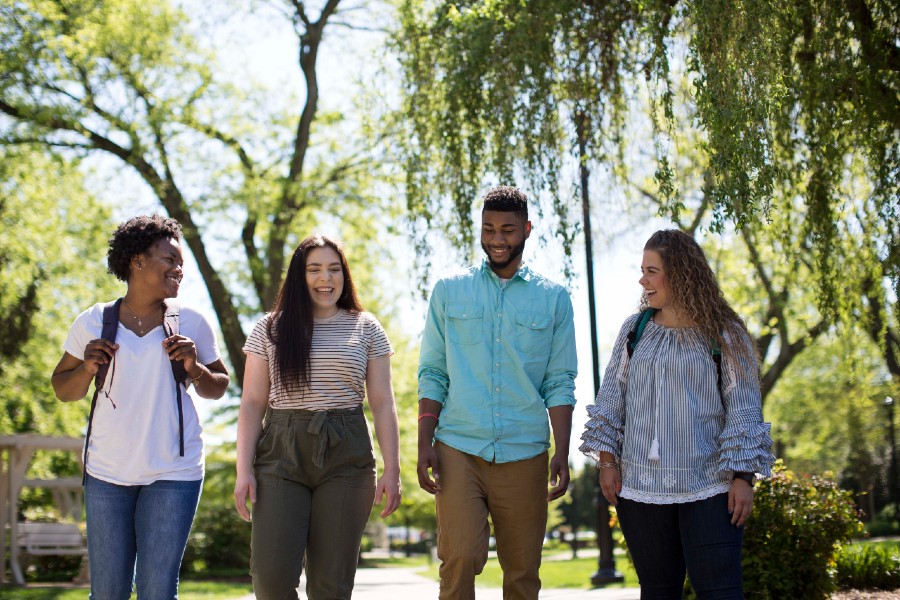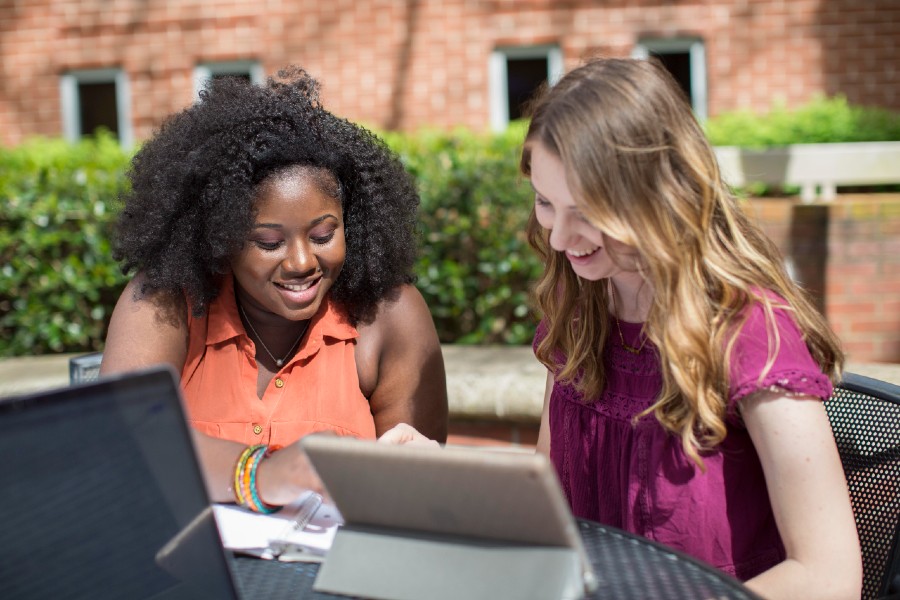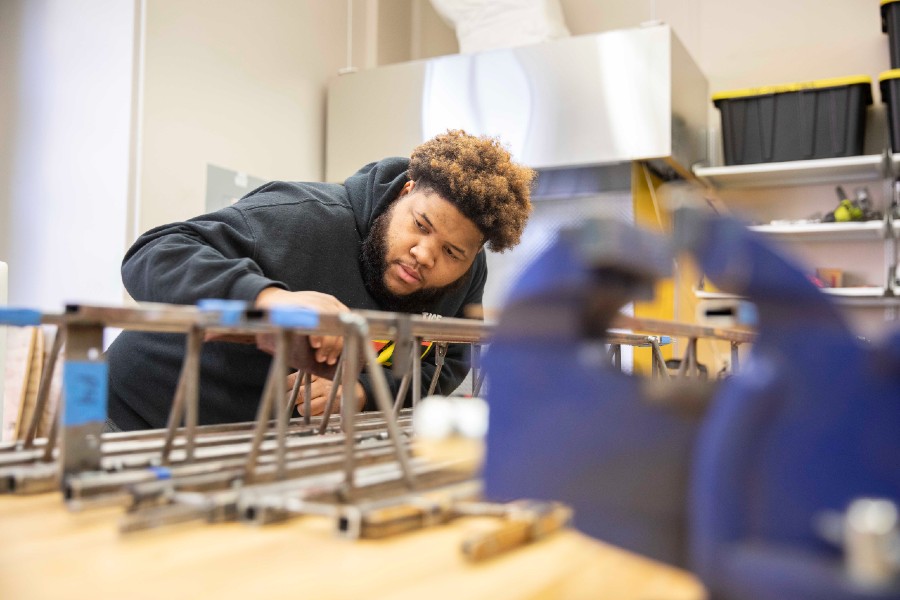Freshman enrollment this fall boasts record percentage of ethnically diverse students
The Class of 2025 starts its collegiate experience with 31% coming from underrepresented racial and ethnic categories.
Janel Shoun-Smith | 615.966.7078 |

This fall, Lipscomb University enjoyed a record enrollment of students from historically underrepresented racial or ethnic categories in its freshman class. The future Class of 2025 began its college journey with 31% of students identifying as part of underrepresented racial or ethnic categories.
Interacting within a student body made up a diverse set of races, life experiences, cultural backgrounds, ages and worldviews has become a crucial component of preparing for today’s global workplace, said Byron Lewis, vice president of enrollment management.
“In our world today, it is an absolute that our students will encounter diversity in the workforce. They will certainly not be surrounded by people who think and act like them at all times,” he said.
“Our ability to prepare them for that eventuality is very important. So the fact that our classrooms can increasingly include students with experiences from all forms of life, civil discussion, valuable conversation and the ability to share perspectives with each other, is essential for their success in the working world.”
A diverse student body that reflects the diversity of the world also helps craft students to become good neighbors in their future communities, said Dr. Prentice Ashford, dean of community life.
“At Lipscomb, we focus on developing well-rounded students who will be successful in not only the workplace but in their relationships, communities and churches,” said Ashford. “Being on a campus with different backgrounds and perspectives helps all students be better participants in creating a better world.”

Lewis oversees undergraduate and graduate admissions and says that the record numbers achieved this fall were the result of focused outreach over the past few years. Admissions counselors have worked hard to help all potential students understand how a Christian, private education can be affordable and how the Lipscomb community offers points of connection for all students of any background, he said.
The institution, as a whole, has been focused on financial policies that make a Lipscomb education more affordable, Lewis said, and admissions recruiters have broadened their efforts to reach out statewide and in Metro Nashville.
“We’ve been intentional about helping students to see a path to a college education,” he said. “We have put scholarships in place that are helpful to all students. We didn’t want money to be a factor for any student who wanted to come here.”
In addition to boosting scholarship opportunities overall, various pipeline programs have been established in the past few years to bring students from a variety of backgrounds, be it racial, social economic or age among others, into high-demand job fields such as engineering and education.
The Pionero Scholars program, for example, was established in 2015 with the intent to recruit Nashville students who reflect the diversity of Nashville to go into the teaching field. The National Science Foundation provided a grant in 2015 for the Raymond B. Jones College of Engineering to recruit community college students into their engineering programs and a 2020 grant for the Lipscomb Noyce Scholars Program to recruit undergraduate students in STEM majors to pursue licensure as STEM teachers.
This fall, nearly 10% of Lipscomb’s undergraduate students — an institutional record — are Hispanic or Latino. The total number of undergraduate, graduate and nontraditional students enrolled at Lipscomb this fall who are of a Hispanic or Latino ethnic background is 318.
The College of Education student body is 20% minorities that self-identify as American Indian, Asian, Black/African American, Hispanic/Latino, and multiple races. Thanks to special partnerships and scholarship programs like the Pionero Scholars, the number of Hispanic/Latino candidates increased from 16 candidates in 2019 to 23 candidates in 2021, said Trace Hebert, interim dean for the College of Education.
The Raymond B. Jones College of Engineering has reached 28% minority students, its highest portion ever, in part due to the NSF-funded S-STEM grant, said Fort Gwinn, associate dean for the college.

“By recruiting students at high schools that may have a higher percentage of Hispanic/Latino students, reaching out into the community to communicate effectively about the value that a Lipscomb educational experience provides, and working to make a Lipscomb educational experience affordable, we have been able to help students see themselves here,” Lewis said in a recent story for WPLN News, Nashville Public Radio.
Once they arrive, the Office of Community Life works hard to help every student find their place on campus, said Ashford. Several new organizations have been launched to foster cultural awareness and to better serve students, the student life governance structure has been designed to promote collaboration among various student groups and programming has been developed in the past two years to foster safe, open discussion among students, he said.
“Additionally, Community Life has intentionally created more leadership opportunities for more students to be active contributors in the creation of the student experience. We believe these additional voices, backgrounds and perspectives help foster a more authentic representation of the student experience, Ashford said.
The best promotion for the Lipscomb experience is students who succeed and thrive at Lipscomb and then tell their fellow students at their former high schools and community colleges, said Lewis.